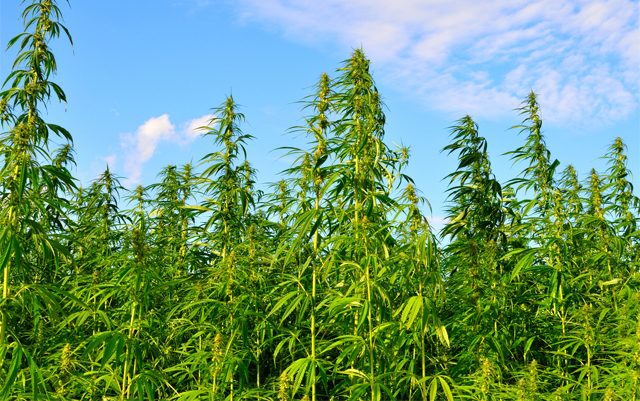Before marijuana really became known in the United States, hemp was a vital crop. These days, we are the world’s number one importer of hemp products due to a federal ban that has been in place for as long as cannabis has been illegal. Since there was never a distinction between the two types of cannabis plant, the industrial hemp plant has had to serve the same sentence of prohibition that the marijuana plant was put under.
In 2014, the federal government finally made a small move forward in differentiating the two, however, their provision only allows hemp to be cultivated for research purposes under an amendment to the federal farming bill.
More and more states are deciding to ignore federal law when it comes to industrial hemp – allowing it to be grown for commercial purposes. Now Rhode Island will join Maine, Oregon, Vermont, and Colorado on the list of states allowing the growth of industrial hemp. The governor of Rhode Island, Gina Raimondo, signed the bill this week though it will not officially go into effect until January of 2017. The bill even states that: “States are not required to enforce federal law or prosecute people for engaging in activities prohibited by federal law. Therefore, compliance with this chapter does not put the state of Rhode Island in violation of federal law.”
Clearly lawmakers were not worried about whether or not the federal government would approve of their new laws – they are more concerned with bringing a cash crop back into the world of agriculture where it belongs. Under the new law, hemp will be considered any cannabis plant with less than one tenth of a percent THC. In most states (and federally) hemp is considered to be any cannabis plant with less than 3 percent THC. The new law also requires that plants be tested routinely throughout growing, harvesting and processing to ensure that they meet this requirement.
The bill was overwhelmingly supported during the voting process, receiving a unanimous 71-0 in the House and 26-7 in the Senate. This is a big step for those who will benefit from industrial hemp – which can be used in a number of products including food, clothing, cosmetics and more. Along with this bill, other cannabis related bills that passed include one adding PTSD to the list of qualifying conditions for medical marijuana in the state. There was a bill aimed at legalizing cannabis entirely – however they did not get to vote on it before the end of this session.
Even though the two plants are so similar, their uses vary so much that industrial hemp is practically an entirely different plant. With legalization happening for commercial use in multiple states, it will only be a matter of time before the price of hemp products goes down and the number of imported products will likely drop as well. However, until the federal ban is lifted – or more states take the initiative to ignore such a senseless law – we will likely remain the world’s largest importer of industrial hemp products.






